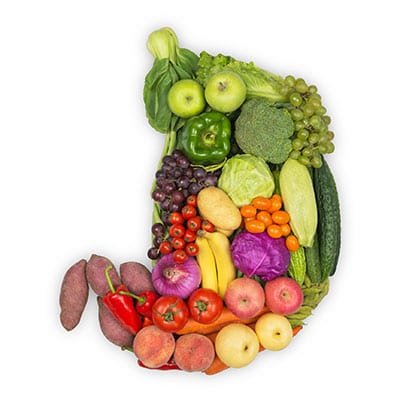Millions of people suffer from digestive issues such as gas, constipation, and diarrhea, with 15% of people in Western countries suffering from irritable bowel syndrome, a severe form of gut sensitivity. Sildalist 120 and Tadalista is an effective treatments for medical conditions.
Here are five foods to help you avoid common gastrointestinal symptoms and promote healthier digestion.
Complete Grains
Should I eat white or brown rice? Which is better: whole wheat or white bread? Choose whole grains if you want your gut to work better, according to doctors, because optimal colon function requires at least 25 grams of fiber per day.
Compared to refined carbohydrates like white bread and pasta, whole grains provide more fiber and additional nutrients like omega-3 fatty acids. Short-chain fatty acids are produced when gut bacteria ferment fiber. These molecules promote proper function in the cells lining the colon, which houses 70% of our immune cells.
Despite the popularity of low-carb diets for weight loss, eliminating grains may be detrimental to the good gut bacteria that thrive on fiber. The invention of industrialized roller mills in the late nineteenth century revolutionized grain processing. Milling removes the bran and germ, leaving only the soft, easily digestible endosperm. The grain is easier to chew without the fibrous bran. Because of its fat content, the germ is removed, which can reduce the shelf life of processed wheat products.
The nutritional quality of the resulting highly processed grains is significantly lower. While refining wheat produces fluffy flour for light, airy pieces of bread and pastries, it removes more than half of the B vitamins, 90% of the vitamin E, and almost all of the fiber. While some nutrients can be replaced through fortification, other health-promoting components of whole grains, such as phytochemicals, cannot.
Greens with a lot of leaves
Leafy greens, such as spinach or kale, are high in fiber and nutrients such as folate, vitamin C, vitamin K, and vitamin A. According to research, leafy greens also contain a type of sugar that promotes the growth of healthy gut bacteria.
Eating plenty of fiber and leafy greens promotes the development of a healthy gut microbiome — the trillions of organisms that live in the colon.
Lean protein
People with IBS or bowel sensitivity should stick to lean proteins and avoid high-fat foods like fried foods. Kale is high in minerals, antioxidants, and vitamins, especially A, C, and K. Cooking reduces the nutritional profile of the vegetable, so it’s best eaten raw to reap the most benefits.
High-fat foods can cause colon contractions, and the high-fat content of red meat is just one reason to choose healthier alternatives. According to experts, red meat promotes colon bacteria that produce chemicals linked to an increased risk of clogged arteries.
Fruits with a Low Fructose Content
If you suffer from gas and bloating, consider limiting your intake of fructose or fruit sugar. Fruits high in fructose include apples, pears, and mango.
Fruits and grapefruit fruits, such as orange juice and grapefruit, on the other hand, contain less fructose, which makes them simpler to tolerate and less likely to cause gas. Bananas are another low-fructose fruit high in fiber and contain inulin, which promotes the growth of beneficial bacteria in the gut.
Fructose is a natural sugar found in fruits, fruit juices, some vegetables, and honey. Fructose is also a fundamental component of table sugar (sucrose), and high-fructose corn syrup is used to sweeten a wide range of processed foods and beverages. When your digestive system fails to absorb fructose properly, it can cause abdominal pain, diarrhea, and gas.
Juices, apples, grapes, watermelon, asparagus, peas, and zucchini should be avoided by people who are fructose intolerant. Low-fructose foods like bananas, blueberries, strawberries, carrots, avocados, green beans, and lettuce may be tolerated in small amounts with meals.
Avocado is a superfood high in fiber and essential nutrients like potassium, which promotes healthy digestive function. It’s also a low-fructose food so it won’t give you gas. Regarding foods like nuts and avocados, watch your portion sizes. Although they are high in nutrients, they are also high in fat, so use caution when eating them.
Avocados are high in nutrients and may have a variety of health benefits. These include improving digestion, lowering the risk of depression, preventing bone loss, promoting heart health, and preventing cancer, among other things. Avocados are high in monounsaturated fatty acids and contain various vitamins and minerals. They can provide various benefits when incorporated into a varied, healthy diet.
Click Here: charityandlife.com



